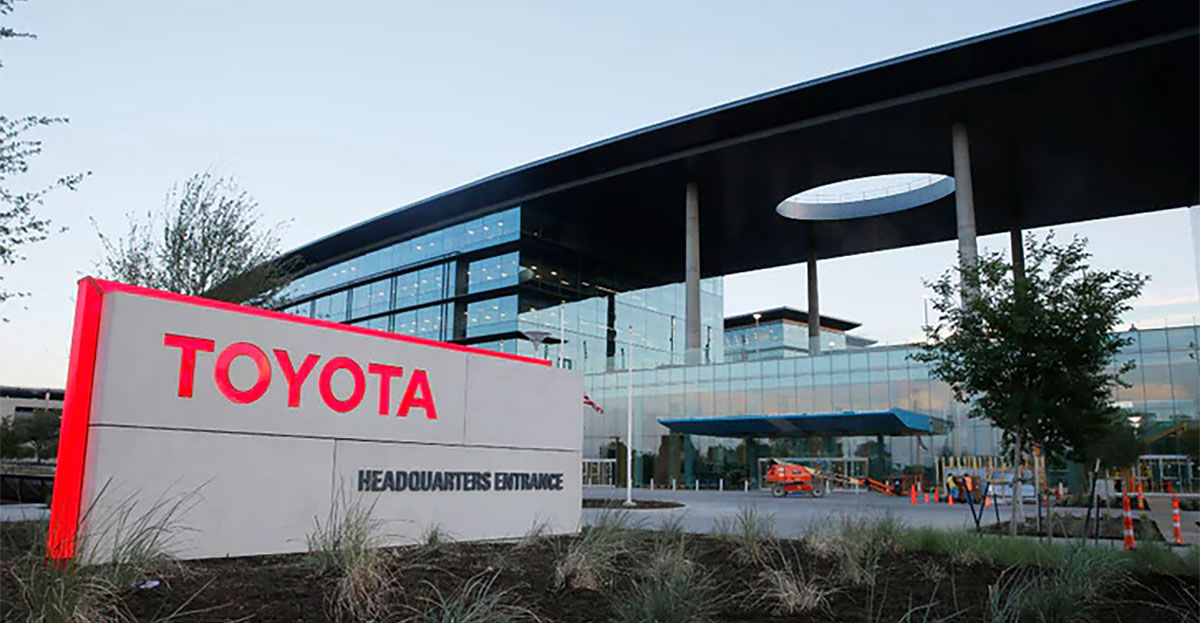- Toyota acquired the most patents compared to all other automakers in the U.S in 2021.
- That’s the eighth year that Toyota is topping the list of patent applications in the motor vehicle industry.
- However, the 2,753 patents it acquired represented a 2% decline from the carmaker's 2020 numbers.
Toyota, the world’s largest automaker by sales, is also the most prolific patent acquirer in the United States. For the eighth year in a row, the carmaker has topped all other competitors in patent acquisition within the U.S automobile sector. In fact, according to a banklesstimes.com presentation, Toyota acquired 2,753 patents in 2021—the largest number by any automaker in the country!
That said, Toyota filed 2% fewer patents than in 2020, when it won 2,819 patents. That figure represented a 4% jump from its 2019 applications.
Most of the firm’s patents related to electric vehicles, battery technology, autonomous driving systems, software, and artificial intelligence (AI).
Toyota’s commitment to innovation
Toyota’s lead in patent acquisition in the U.S market underscores its commitment to innovation. Speaking on the development, Toyota North America’s Vice president Sandra Phillips-Rogers said, “The number of issued patents is a testament to Toyota’s vast R&D efforts and the team members who bring these technologies to life.”
The auto giant’s patent portfolio focuses on technology that will allow its cars to operate autonomously and safely. Its research efforts include systems for vehicle-to-vehicle communications and detecting pedestrians or cyclists, thereby helping prevent accidents.
That system would alert drivers when their car is about to hit another or an obstacle. It’ll do so considering their speed and proximity to other vehicles around them. It would also take into account information from other automobiles. So it could warn drivers of possible collisions with multiple cars at one time.
Revving up for full mobility
Toyota North America sees the development in patent acquisition as setting the stage for its transformation into a mobility firm. Its IP and patent licensing lead Frederick Mau affirms, “This year’s patent list represents our efforts with respect to vehicle electrification, as evidenced by pioneering battery technology, as well as new IP to support Toyota’s transition into a mobility company.”
Towards that end, the firm is investing most of its R&D resources in its Woven Planet Group (WPG). WPG will guide Toyota’s development of autonomous driving and groundbreaking mobility tech. Moreover, WPG is at the thick of the company’s robotics and smart cities technology drive.
The company has stepped up the development of “Arene,” its motor vehicle operating system (OS). This OS handles all of the vehicle’s functions, including the self-driving feature. Besides controlling the vehicle’s basic operations, Arene will manage its safety systems, location data, and traffic reports. The company intends to incorporate the OS in its cars by 2025.
Toyota’s electric ride
Toyota has also ramped up its plans to electrify its vehicle lineup. The plan entails committing $70B by 2030 towards that cause. The company will allocate up to $35B of that budget to develop new electric car models, including full EVs, hybrids, and fuel cell versions.
Toyota North America is working with Toyota Shusho, its parent company’s trading arm, to localize battery production. It is investing $3.5B of the $13.5B it has earmarked for battery development towards those efforts. The firm will build a battery plant in the U.S in anticipation of future spikes in EV demands.









